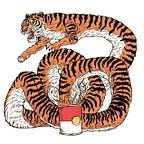The Lighthouse (2019) is about Gödel's Incompleteness Theorems
No, hear me out.
Gödels Incompleteness Theorems state that:
“The first incompleteness theorem states that no consistent system of axioms whose theorems can be listed by an effective procedure (i.e., an algorithm) is capable of proving all truths about the arithmetic of natural numbers. For any such consistent formal system, there will always be statements about natural numbers that are true, but that are unprovable within the system. The second incompleteness theorem, an extension of the first, shows that the system cannot demonstrate its own consistency.”
In other words: Math will always have a blind spot. Maybe you'll need some time to let that sink in.
This is a certain deep pattern — I would place Gödel in the same category as Taleb or Scott or Zen Buddhism or the Fox in Archilochus' saying "a fox knows many things, but a hedgehog knows one big thing” . All those have in common that they reject the idea of a grand design(er) or architect(ure) which encapsulates everything, instead stressing the importance of Metis/organic growth/experience/practice over logic/book learning/theory/high modernism.
Why do I see that in this film? It is already clear that the old guy is supposed to be Poseidon and the young lad Prometheus. I also see a clear Apollonian-Dionysian distinction — the old sailor is even the one who introduces the idea of getting hammered. Also, like in real life, chaos reigns (symbolised by the old drunkard being the boss).
Now when the Apollonian one finally wins, it tuns out he lay the base for his own demise. While the old one is content with, er, just dispersing man goo in front of the light (quite the Dionysian way to approach things), the young one first starts cackling manically once he touches it and subsequently screams his lungs out, obviously not being equipped to handle it. Like Ikarus (the third greek reference) he tumbles down and dies.
What I am getting at now is: The point of this is “don’t try to fit your logical models to everything; if you try you will go mad”. The old lad is already half-mad and does not care for consistency, so he can bear the chaos and self-contradictoriness of truth. Upon encountering strange mythological beings he just fucks them, while his less bearded peer can't deal with the mermaid. The young one is in a sense tied to the idea of structure and formal understanding and breaks against the rocks of reality (symbolised by the light) which, according to Gödel, is quite nonconforming to our mathematical meta-models.
Putting it another way — you should be able to bear a minimum (!) of cognitive dissonance because you'll encounter it all the time anyways. If you can't, you'll condition yourself to avoid looking altogether. If you can bear it without any effort on the other hand, you run the risk of being a perma-drunk Zen master who jerks it in front of God. (I did really not mean for it to sound appealing; one must imagine the lunatic as an uncool man).
Admittedly, the film is not *literally* about the Incompleteness Theorems. But they are specimen of a general pattern one should be aware of. Also it made you click, ha ha.
And finally — there is some clear reference to Oedipus (Lad’s eyes are broken at the end, he calls the old guy “not his father”, he touches the light which according to the senior is his wife and promptly goes insane). But I don’t know what this has to do with anything.
